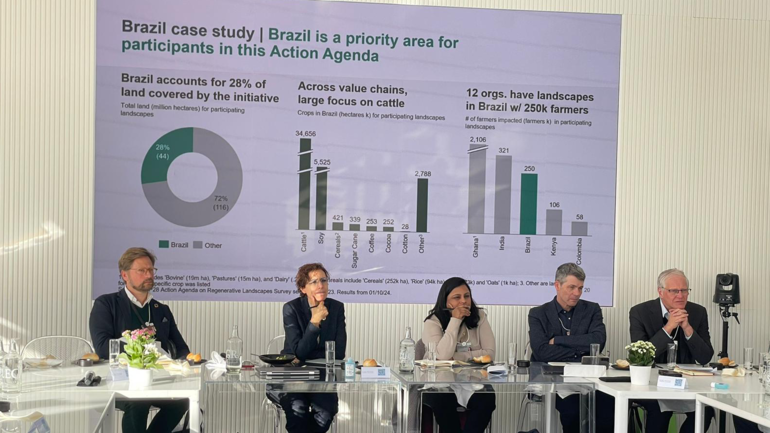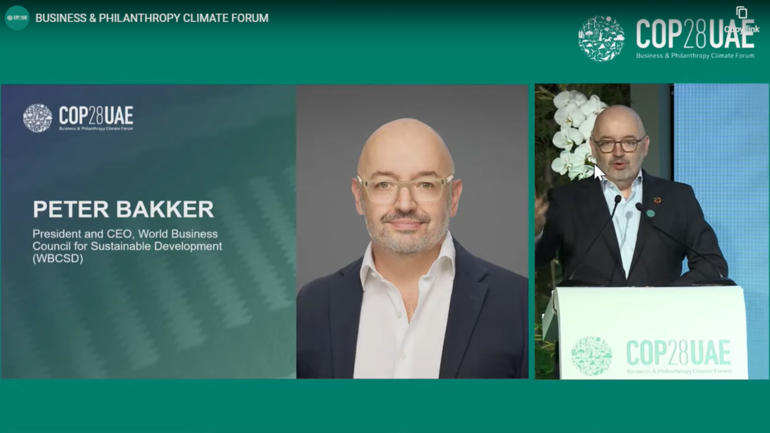As global leaders, businesses and civil society gather in Madrid for the next spate of climate talks, the science has never been clearer. We know that allowing global warming to reach 2 °C above preindustrial levels would be more catastrophic than 1.5 °C. We are set to surpass this threshold as early as 2040, but for many people around the world, disastrous effects of a warmer world such as droughts, forest fires and extreme floods are already a reality.
Businesses around the world have a vital role to play in delivering a net-zero emissions world to combat dangerous climate change. As innovators and investors, the private sector has already dialed up essential transitions across their operations, including buying renewable energy, scaling up sustainable transport fuels and setting science-based targets to reduce emissions in line with the 1.5-degree Paris target.
We saw business ambition raised at the UN Secretary-General’s Climate Action Summit in September, where more than 90 leading businesses pledged to achieve net-zero emissions by 2050. The Summit acted as a catalyst for the launch of other major initiatives showing business stepping up commitments to protect nature and biodiversity with the launch of the ‘Business for Nature’ coalition and the ‘One Planet Business for Biodiversity’ coalition.
Global businesses are showing considerable climate ambition. But we need to go further and faster.
With so much at stake, we must accelerate systems transformations to a climate resilient economy at scale. And for this we need stronger commitments from governments around the world to back bold climate action.
In this crucial COP to demonstrate raised ambition and concrete action, we at WBCSD want to see governments announcing clear intention to strengthen their Nationally Determined Contributions (NDCs) targets and policies. Only through strong, national policies can businesses scale up low-carbon investments towards climate-resilient societies. Ahead of the negotiations, I urge governments to support and implement the following enablers which are critical to securing a resilient, zero-carbon future.
It’s time to put a price on carbon
Carbon pricing is one of the most effective and cost-efficient means of driving deep decarbonization. We need governments to put a price on carbon and develop clear, long-term carbon pricing policies if we are to stand a chance of achieving our 1.5-degree goal and net-zero emissions by 2050.
Businesses know that building a carbon price into investments and operations can help manage risks and achieve bold emissions targets. As of 2018, more than 1,300 companies – including more than 100 Fortune Global 100 companies – disclose that they use an internal carbon price or plan to do so in the next two years.
There is global consensus about the need for carbon pricing as a means to price externalities. Business is calling strongly for carbon pricing regimes and long-term policies that place a cost on carbon emissions.
With the rules for Article 6 remaining the missing piece of the Paris Rulebook, the COP25 negotiations in Madrid are critical for advancing private and public cooperation. We need secure and robust carbon pricing mechanisms to enable more cost-efficient climate action.
We need full information on climate risks to markets
We all face climate risks, no matter our geography, sector or socio-economic status. Yet the financial costs of climate risks are too often overlooked. While investors know that climate change poses serious risks to our economy, we still lack clear information about which companies or assets are most at risk and which are most resilient.
To enable accelerated transition to a net-zero carbon economy, markets need full information on climate risks and opportunities. This October saw the Task Force on Climate-Related Financial Disclosures (TCFD) convene for its first global summit in Tokyo, with governments and investors committing to wider uptake and better-quality climate-related financial information. Considerable challenges lie ahead in transitioning to a low-carbon economy. But shifting our financial systems to reward climate resilience and business innovation can lead to immense opportunities for business leadership. Government support to enact TCFD recommendations and develop strong policy support for businesses to report climate-related financial information will be crucial for accelerating climate action.
We need to unlock nature’s potential to put us on track
More than ever before, the role of nature is emerging as a fundamental component of climate action. The natural carbon-storing capacities of our forests, grasslands and wetlands offer a unique opportunity to stay within the safe limits of a 1.5-degree temperature rise.
Research shows that natural climate solutions to reduce emissions could achieve a third of the emissions reductions we need by 2030. However, despite their vast potential, natural climate solutions only receive around 2-3% of climate finance globally. We need governments to scale-up investment that reflects nature’s role in climate action and put natural climate solutions at the heart of their NDCs for 2020.
As we brace ourselves for a busy fortnight at COP25, I urge all participants to make it a COP on ambition. Bring ambition into all your discussions. We are running out of time to make global advances towards a zero-carbon future. There’s never been more at stake.








